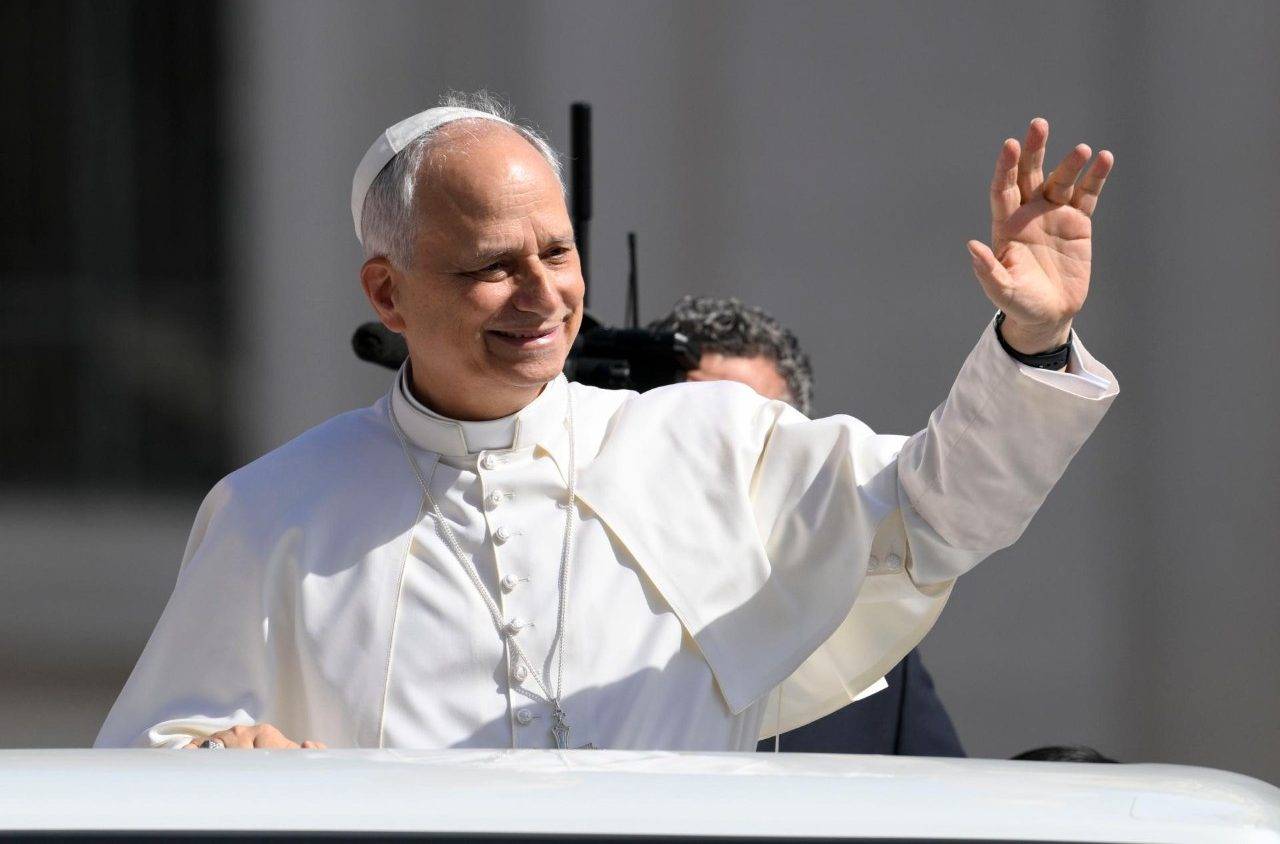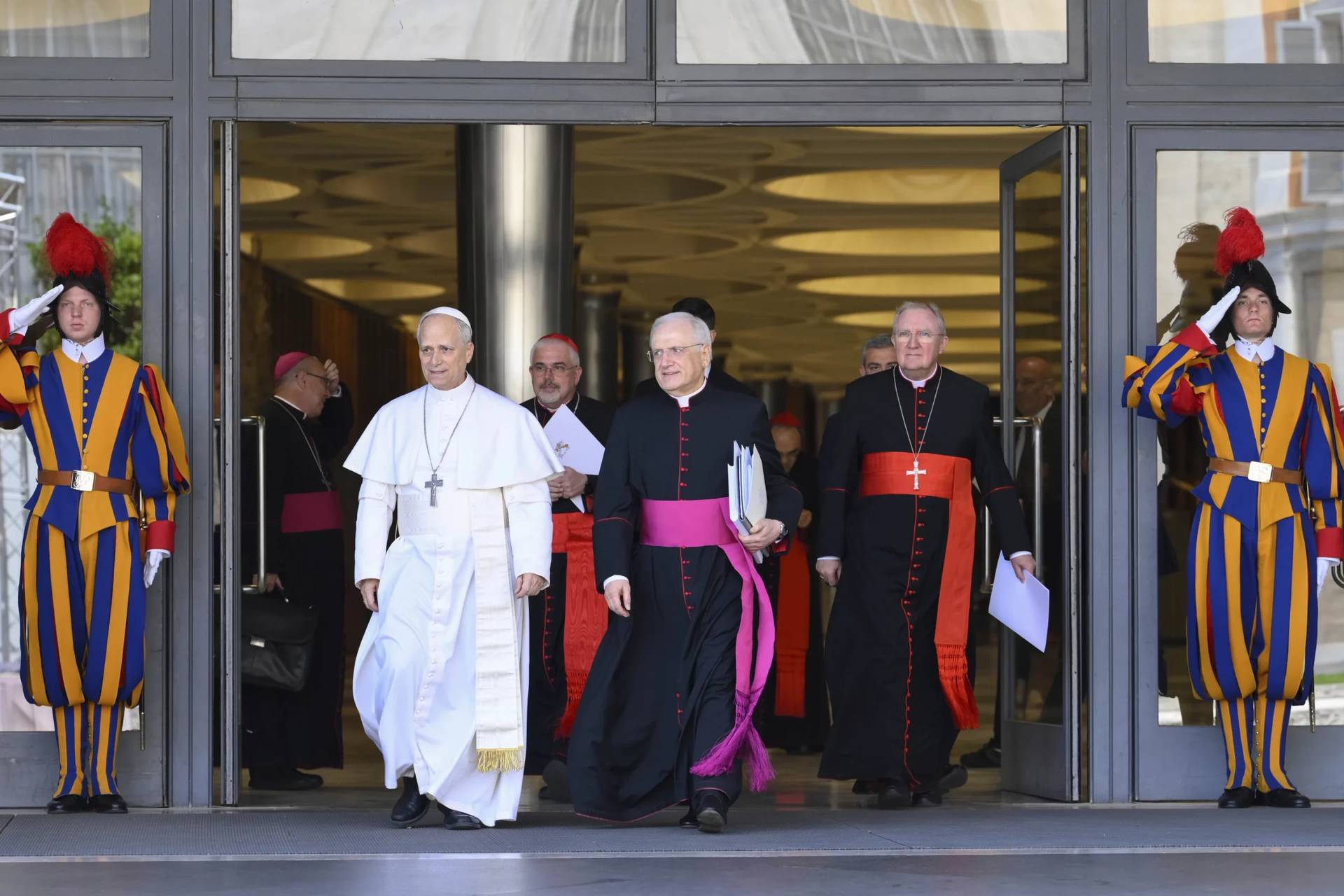In his 1975 ballad “Thunder Road,” Bruce Springsteen tells his imaginary paramour that she can either waste her summer “praying in vain for a savior to rise from these streets,” or seize the realistic if flawed option in front of her, i.e., him.
While no one probably would tout the Boss as an expert on the Middle East, a good cross-section of the region’s minorities, including its Christians, would nevertheless share his basic sentiment: It’s often better to take the option that’s actually on offer, rather than dreaming of a White Knight unlikely ever to arrive.
In 2003, that was the message of Iraq’s Christian minority: Yes, Saddam Hussein is a brutal thug with dangerous delusions of grandeur, but what’s likely to follow will be even worse. A decade later, when the Western powers were on the brink of using armed force to dislodge Bashar al-Assad in Syria, the message from Christians was much the same.
All of which brings us to Abdel Fattah al-Sisi, the former Field Marshal and Chief of the Armed Forces who’s been governing Egypt since June 2014.
Recently al-Sisi, a devout Sunni Muslim, recorded a video message for the Islamic feast of Laylat al-Qadr, celebrated as the night when the first verses of the Qur’an were revealed to the Prophet Muhammad, and marked this year on July 2.
Al-Sisi bluntly said that Islamic “religious discourse” must reject extremist positions.
“The Islamic world is going through a perilous moment of transition, facing threats without precedent for the lives of its people,” he said, requiring “convergent efforts from all of us, putting aside our differences.”
He pointedly addressed the Al-Azhar Mosque and University complex in Cairo, perhaps the most authoritative institution in the Sunni world, insisting it must “rethink its religious patterns of speech.”
It’s not the first time al-Sisi has struck such notes.
Last year in an address at Al-Azhar, he insisted that the Islamic world must not be seen as a “source of anxiety, danger, death and destruction” for the rest of humanity, and that Islamic religious leaders must promote a “religious revolution” in favor of a “more enlightened vision of the world.”
It’s that kind of rhetoric that has earned al-Sisi the support of a substantial share of Egypt’s Christian minority, which at ten percent of the population is by far the largest Christian community in the Middle East.
When al-Sisi deposed the country’s Muslim Brotherhood-led government in July 2013, the move was publicly blessed by Pope Tawadros, the leader of the Coptic Orthodox Church that’s Egypt’s largest Christian denomination. Al-Sisi has returned the favor, making a habit of going to Cairo’s Coptic cathedral for Christmas Mass and repeatedly assuring Christians they’re part of the fabric of Egyptian society.
When my Crux colleague Inés San Martín and I were in Egypt last year for a series on anti-Christian persecution, we were struck by how pervasive support for al-Sisi seemed at the Christian grassroots.
Father Rafic Greiche, a Greek Melkite priest who serves as spokesman for the Catholic Church in Egypt, said he believes Sisi would probably draw at least 85 percent Christian support in an open vote.
“If you ask a normal Christian in the street, it’s complete love,” Grieche said.
To be sure, there’s a minority among Christians highly critical of al-Sisi, believing his rhetoric about combating extremism is just a pretext for imposing a police state, one in which Christians are at risk as much as everyone else.
Mina Thabet, a Coptic human rights activist, told us last summer “it’s all fake,” and he now has good personal cause for his skepticism: He was arrested by security forces in May for criticizing the government, and was released from prison on bail only on June 21.
The Christian majority, however, tends to think the realistic alternative to a police state isn’t a thriving democracy, but annihilation.
Outside the country, al-Sisi faces mounting criticism on two fronts:
- From secularists and foreign policy wonks, who deride his crackdowns on political dissent and his overall human rights record. Recently the Egypt Working Group of the Carnegie Endowment sent U.S. President Barack Obama a letter insisting that he publicly rebuke al-Sisi for his prosecutions of civil society organizations.
- From Christian activists and watchdog groups, who point out that his vows of protection aren’t always matched by reality on the ground. On June 30, a Coptic priest was gunned down in the Sinai Peninsula, marking the second such slaying in the area in three years. Meanwhile, several Copts have recently been given prison sentences for various alleged offenses.
Some Western observers seem almost scornful of Christian backing for al-Sisi. In May, Doug Bandon, a fellow at the conservative Cato Institute, warned they’re in danger of selling off their “liberty birthright for what turns out to be a mess of security pottage.”
Here’s the thing: Egypt’s Christians are under no illusions that al-Sisi is an angel.
They know he’s a creature of the same military/industrial/political complex that has ruled the country since Nasser, they know he has little patience for dissent, and they also know his embrace of Christian rights is at least as much politics as principle.
They also know, however, that however bad things may become, whatever would take his place is probably worse – and they’ve actually experienced it under the brief-lived Muslim Brotherhood government, which was the depressing denouement of the Arab Spring.
To put the point in spiritual terms, many Christians in places such as Egypt would say they’ve already got a Savior, and they’re not expecting another one from politics. All they really want is a friend, and despite it all, many believe they’ve got a better shot at it from al-Sisi than the other plausible options.
At the very least, that’s a view worth considering as Western governments and political activists ponder their attitudes about a part of the world that’s not their own, and where they don’t have to live with the consequences of whatever choices they make.
















